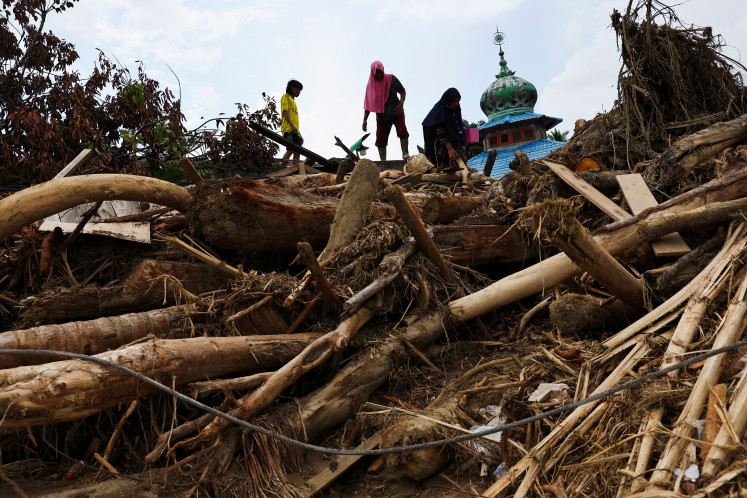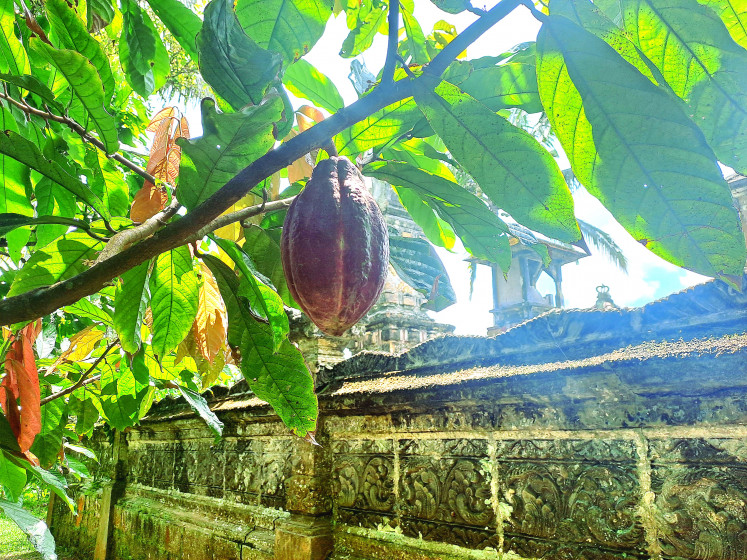Popular Reads
Top Results
Can't find what you're looking for?
View all search resultsPopular Reads
Top Results
Can't find what you're looking for?
View all search resultsInsight: Indonesia, 14 years after the fall of Soeharto
Much has been achieved since Indonesia became a more open democracy after former president Soeharto decided to end his 32-year rule on May 21, 1998
Change text size
Gift Premium Articles
to Anyone
M
uch has been achieved since Indonesia became a more open democracy after former president Soeharto
decided to end his 32-year rule on May 21, 1998. At home, public liberty has generally been honored. Elections have been free and fair and those who hold public office are continuously scrutinized. Abroad, the country has been applauded as the third-largest democratic nation after India and the United States. Being the country with the world’s largest Muslim population, several emerging democracies, such as Egypt, have sought to learn from the Indonesian experience.
Fourteen years have passed with four different presidents — B.J. Habibie, Abdurrahman “Gus Dur” Wahid, Megawati Soekarnoputeri and Susilo Bambang Yudhoyono — having worked hard to consolidate the practices of democracy.
As many public surveys have indicated, there are no signs of turning the clock back to where we were before. And yet we are increasingly aware that creating a decent democracy where order, stability, participation, economic development and prosperity and law enforcement work in union is not an easy endeavor at all.
Of course, compared to certain other countries that have experienced their own transitions toward democracy, Indonesia is fortunate enough to not have suffered long and painful transitional processes. In this country, democracy has been somewhat consolidated — where fair and free national elections have been conducted three times and proper rules of the game have been very much in place.
Indonesia’s democracy, however, is not without its own serious set of problems.
A leading Jakarta-based newspaper recently reported that our democratic transformation is still unable to fulfill its promises. Our democratic transformation has failed to deliver its substantive agenda where the notion of what Robert Bellah calls “the good society” can be created; where the idea of what Muslims aspire to as “the good state and forgiving God” can be realized; or where the Javanese often dream about the formation of “a prosperous and safe state” can be put into reality.
The survey also revealed that other than the positive score card on political liberty or freedom of expression, 57 percent of respondents believe that Indonesians are still far away from the democratic promises uttered by many of our national elites in 1998 and during the ensuing years. In fact, 48.1 percent of the respondents are of the opinion that the post-reformation era is even worse than before.
Certainly one can always question the validity of a survey. Given the fact that corruption has become even more rampant, law enforcement, which has not been consistently upheld, the increasing trend of transactional politics, or the enlargement of social, educational and economic hardship for the common people, one would likely agree with the survey results cited. He or she would at least believe that democratic transformation has not brought about a social or economic situation where we can all truly be proud of as a nation.
What went wrong with Indonesia’s democratic transformation?
Few of us question the suitability and merits of democracy. In the past, even some of our founding fathers doubted the compatibility of democracy with our traditions, values and dreams.
In a situation in which democracy is currently being embraced by more that 70 percent of the countries around the world, one can only go with the flow. This has been confirmed by a number of surveys where the majority of Indonesians believe in democracy.
However, we tend to take this notion of belief in democracy for granted. We never have an interest in further understanding the structure and content of the belief in democracy. As a result, we actually do not know what sort of belief we have in democracy.
If this assessment is correct, then actually we do not have real supporters of democracy who we want to craft, practice and develop. In order to be able to work decently, democracy requires the belief of its political activists.
If this is the case, then it is the ambiguity of belief that supporters of democracy have that has made democratic Indonesia suffer through a number of undemocratic problems.
Many factors can surely be accounted for to explain the problems Indonesia has with respect to its democratic endeavors.
I only want to emphasize the belief factor in all of us in the democratic road that we are now paving. It is the absence of the substantive belief in democracy that has made many of us, our local and national elites in particular, unable to function and play their role properly. It is the void of this crucial factor that has made them chose to rule and govern at the behest of personal, individual and micro incentives rather than public, collective and macro objectives.
Prof. Bahtiar Effendy is the dean of Islamic University’s School of Social and Political Sciences (UIN Jakarta) in Jakarta.










